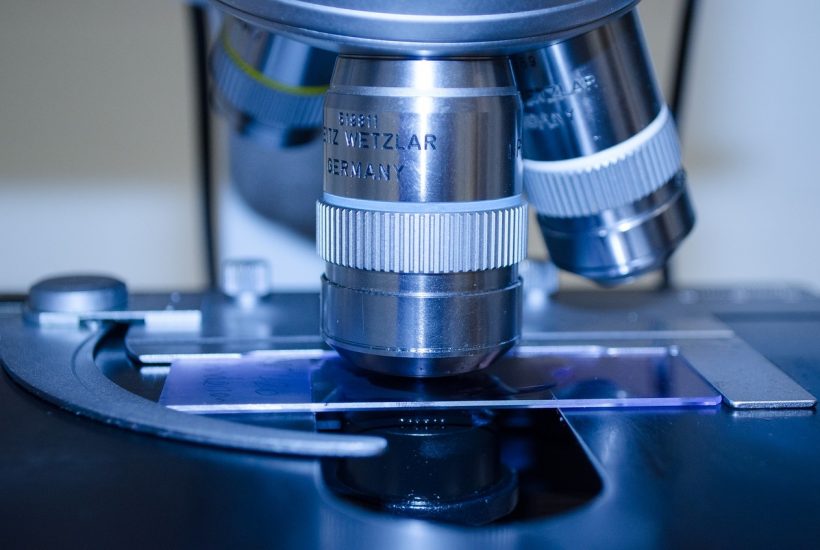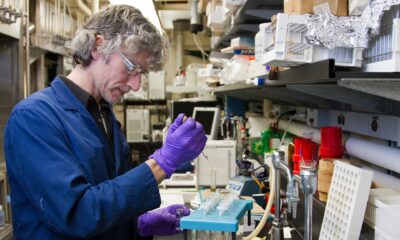Biotech
Spanish Government Earmarks €1.2 Billion to Strengthen Public-Private R&D&I Linkages
The Ministry will launch a national open science strategy, with support for institutions to publish their research in the open, as well as data, methods, or equipment so that they can be at the service of the business sector and society. The program also promotes new public-private alliances by starting to create mixed centers.

The Council of Ministers, at the proposal of the Ministry of Science and Innovation, has approved the Transfer and Collaboration Plan: science and innovation at the service of society. The objective of this plan, which will mobilize €1.2 billion included in the General State Budget for 2023, is to strengthen the links between the public and private sectors in Research, Development, and Innovation (R&D&I) to increase the socioeconomic impact of public investment in research and boost the innovative capacity of Spanish companies.
The Minister of Science and Innovation, Diana Morant, presented this plan at the press conference following the Council of Ministers. “All the measures will develop and apply the new Law on Science, Technology, and Innovation, which was launched last September,” she pointed out. She also stressed that the objective of the Transfer Plan is to consider science as a common good for society. “We cannot waste any of the findings or scientific results that are generated in our society. Therefore, this is a priority issue.”
Spain ranks 12th in the world in terms of the quality of scientific publications, but 29th in innovation.
For her part, the Minister of Territorial Policy and spokesperson for the Government, Isabel Rodríguez, stressed that the project has “an important package of millions to attend to science in our country, to generate opportunities for the scientific research field and also for the economic model and the future.” Spain ranks 12th in the world in terms of the quality of scientific publications, but 29th in innovation. The Ministry has launched this plan with the aim of correcting this “imbalance”.
Read more on the subject and find the latest business news of the day with the born2Invest mobile app.
The Transfer Plan is structured into 3 lines of action and contains 15 measures
The first of the axes refers to knowledge transfer. Its purpose is to ensure that the results generated in the public research system are transferred to companies.
The second axis seeks public-private collaboration for innovation, seeking cooperation in the generation of new knowledge. In fact, the program seeks to finance projects in which public research centers and companies collaborate from the outset, and which are not just one-off collaborative projects, but promote new “more ambitious” public-private alliances and mobility between the two sectors. The third axis is the training and development of the ecosystem. This is a transversal axis because it affects both knowledge transfer and collaboration, and the measures are related to the training of professionals.
The Transfer Plan has a budget of €1.2 billion and is structured in 3 axes and 15 measures
The plan has a time horizon until 2025, although so far it is only budgeted for development in 2023. “This plan consists of a budget of €1.2 billion, which is already included in the budget for 2023. In the following years our intention is to maintain or even expand the budget of this plan,” said Diana Morant. The largest item, more than €500 million, will go to fund collaborative projects involving both the public sector and companies.
In this sense, the Transmissions program will encourage the different funding agencies to collaborate more with each other through joint programs. Another of the measures that stand out within the Knowledge Transfer Program is support for science and technology-based entrepreneurship, with aid or with the State acting directly as an investor, taking a stake in the companies to help them grow faster.
The largest allocation will go to financing collaborative projects involving the public sector and companies
On the other hand, the Ministry will launch a national open science strategy, with support for institutions to publish their research in the open, as well as data, methods, or equipment so that they can be at the service of the business sector and society. The program also promotes new public-private alliances by starting to create mixed centers, and commercial companies with the participation of the State, and the private sector with a long-term vocation.
In addition, it encourages the hiring of research personnel in companies, since private companies hire “few researchers”. The Ministry of Science and Innovation considers that the hiring of researchers “is very important to promote collaboration”. For this reason, recruitment programs will be improved. An Internet portal will also be created to compile available information on grants and calls for proposals related to knowledge transfer and collaboration.
The Ministry will launch a national open science strategy
The program also seeks to bring about a cultural change in researchers, who are “very focused” on publishing in international scientific journals. To this end, the incentive system will “more clearly” incorporate transfer and collaboration. Thus, there will be salary complements for those who demonstrate important results in this area.
Finally, the Minister of Science and Innovation announced that the Council of Ministers has approved the five main calls for science in Spain, through the State Research Agency. Specifically, she detailed that €920 million will be mobilized and that the amount of these calls will be increased by 38%.
__
(Featured image by PublicDomainPictures via Pixabay)
DISCLAIMER: This article was written by a third party contributor and does not reflect the opinion of Born2Invest, its management, staff or its associates. Please review our disclaimer for more information.
This article may include forward-looking statements. These forward-looking statements generally are identified by the words “believe,” “project,” “estimate,” “become,” “plan,” “will,” and similar expressions. These forward-looking statements involve known and unknown risks as well as uncertainties, including those discussed in the following cautionary statements and elsewhere in this article and on this site. Although the Company may believe that its expectations are based on reasonable assumptions, the actual results that the Company may achieve may differ materially from any forward-looking statements, which reflect the opinions of the management of the Company only as of the date hereof. Additionally, please make sure to read these important disclosures.
First published in iSanidad, a third-party contributor translated and adapted the article from the original. In case of discrepancy, the original will prevail.
Although we made reasonable efforts to provide accurate translations, some parts may be incorrect. Born2Invest assumes no responsibility for errors, omissions or ambiguities in the translations provided on this website. Any person or entity relying on translated content does so at their own risk. Born2Invest is not responsible for losses caused by such reliance on the accuracy or reliability of translated information. If you wish to report an error or inaccuracy in the translation, we encourage you to contact us.

-

 Africa3 days ago
Africa3 days agoFrance and Morocco Sign Agreements to Boost Business Mobility and Investment
-

 Impact Investing1 week ago
Impact Investing1 week agoItaly’s Listed Companies Reach Strong ESG Compliance, Led by Banks and Utilities
-

 Fintech5 hours ago
Fintech5 hours agoFindependent: Growing a FinTech Through Simplicity, Frugality, and Steady Steps
-

 Impact Investing1 week ago
Impact Investing1 week agoCDP Approves €1.5 Billion Package to Boost Industry, Renewables, and International Development
























